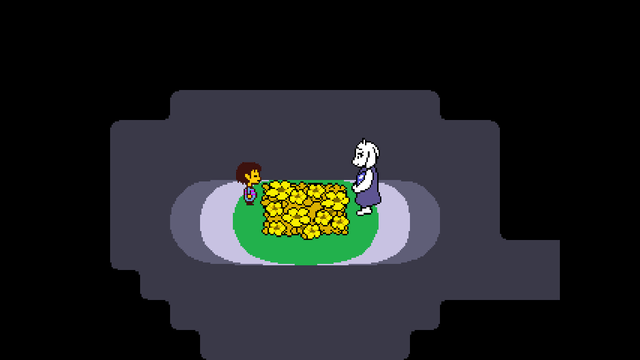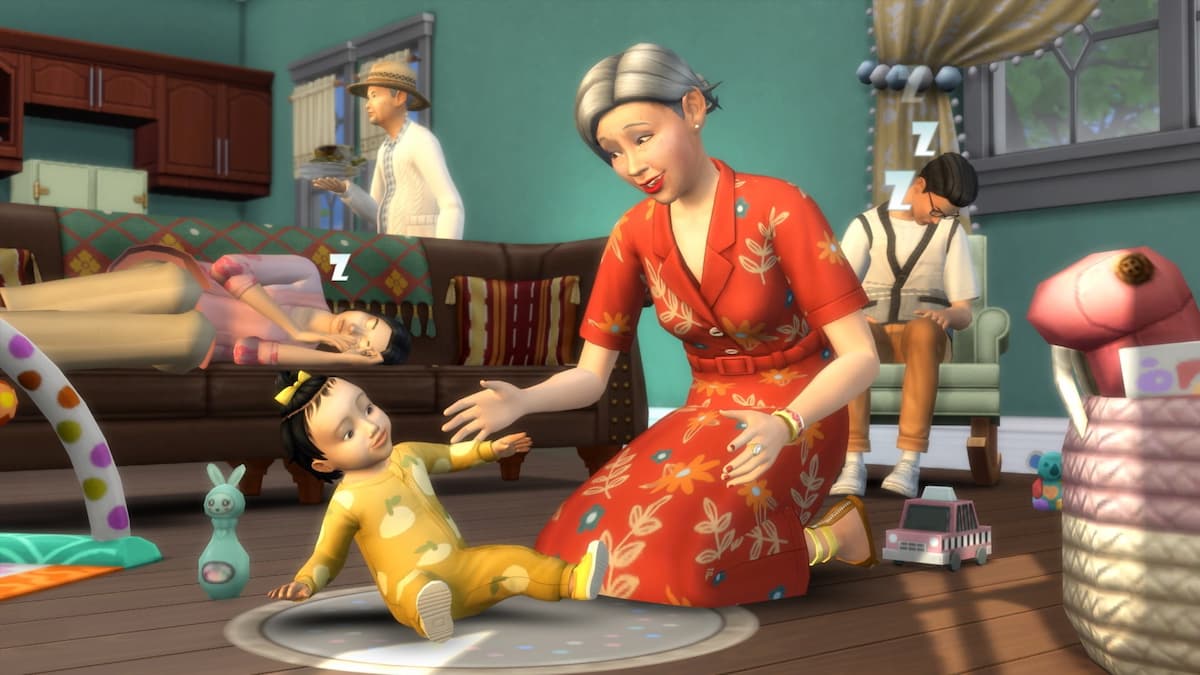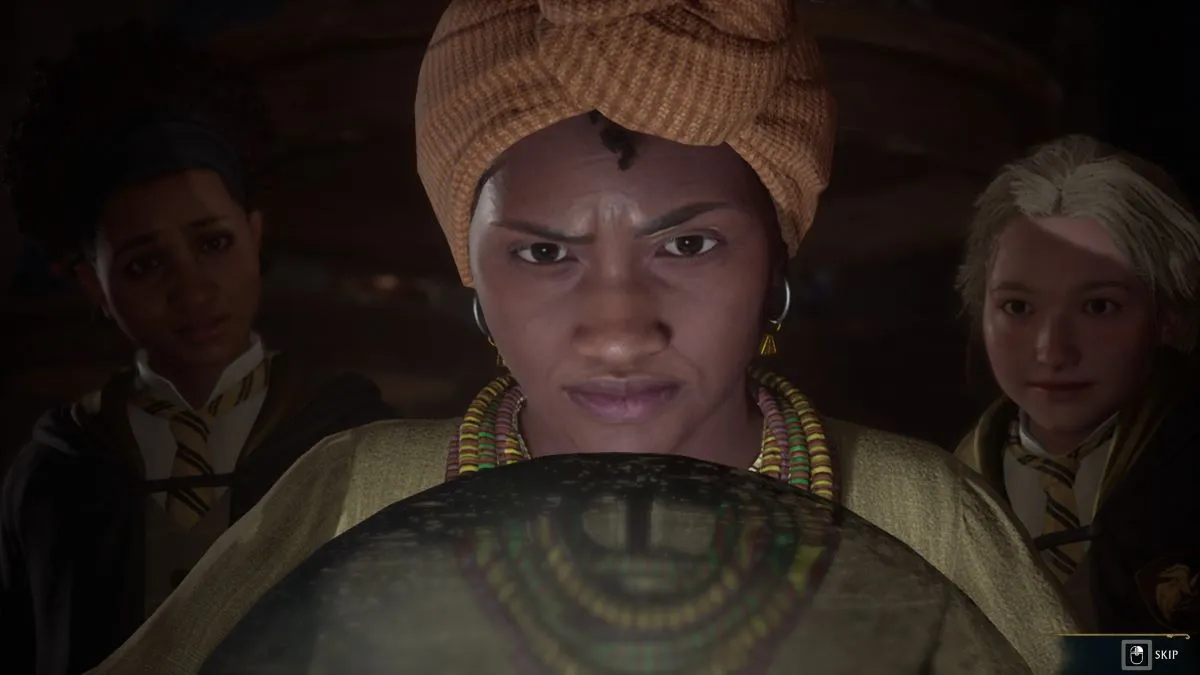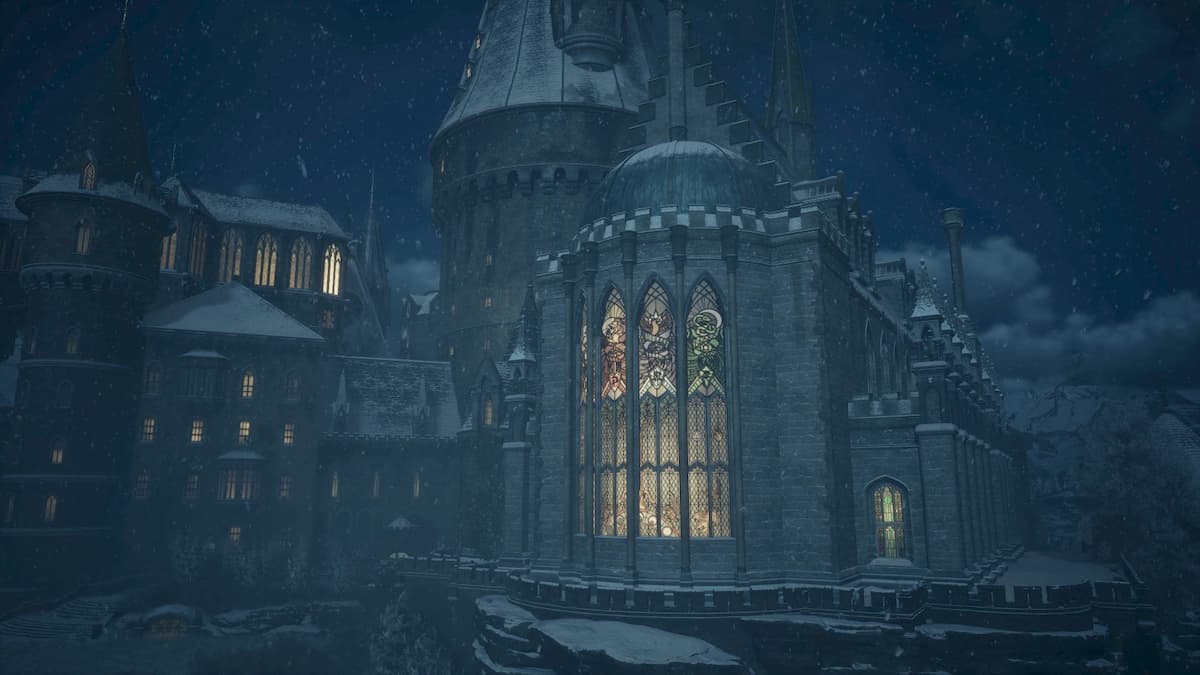When you think of the term “power fantasy,” you probably think of a muscled action hero shooting up all the bad guys. It’s not likely that Undertale, a game about a child who falls into a world of adorable monsters, would come to mind. But Undertale has one thing in common with the stereotypical male power fantasy: power over life and death.
Undertale, however, is what I like to call a “true power fantasy.” In Call of Duty, you don’t have a choice in whether you kill or not. You just do it because that’s part of the game. In Undertale, you have complete control over life or death, and a moral decision to make in every random encounter. Undertale isn’t a game about beating the bad guys. It’s a game about being the bad guy—or the good guy—and living with the repercussions.
And honestly? We really need more games like this.
God among insects
Even before the game starts, Undertale sets it up so you’re a race that has fought and won over monsters. Many of the creatures you encounter in the game are weak and beg for you to have mercy on their kind. It’s repeatedly stated in the game, via books and historical engravings, that you are superior to monsters. You have a stronger “soul” (your weapon and health in the game), and monsters covet that soul.
In a sense, this game mimics the spirit of the Stanford Prison Experiment, a famous but poorly managed psychology experiment in which one group was named the “prison guards” and another the “prisoners”. Even though everyone knew it was an experiment, the prison guards used fire extinguishers to keep the prisoners in line and even psychological warfare, such as forcing the prisoners to use the experiment numbers as their names and removing mattresses from cells. It’s believed that the subjects, who were all psychologically stable upon selection, were fulfilling what they thought to be the roles of their position.
In Undertale, you are given what the men in the prison experiment never received: a morality tutorial. Every action you take in first area of the game, even asking rocks nicely to move, is recognized and rewarded. You are encouraged to act justly and with kindness. But you are also given freedom.
And that freedom, as I mentioned, is the most important aspect of the game’s function as a power fantasy. This game isn’t preachy. It doesn’t force you to do anything except act. At one point, the motherly monster Toriel tells you to stay put, but standing around gets boring and the only real choice is to leave the room and explore. When you again encounter the monster who told you to stay put, she doesn’t reprimand you for wandering the caves alone. In fact, she at times actively encourages you to act on your own. Instead of discouraging independence, she tends to your wounds and invites you to her home for delicious pie.
The monster who teaches humanity
Toriel is arguably the most important character in Undertale, the pivot point of the game’s entire philosophy. You can choose to follow her philosophy of strict non-violence or follow your own path, choosing violence when necessary or complete genocide (if that’s what you want).
Toriel’s philosophy closely mirrors both educational pedagogy and humanistic psychology, which works on the belief that all people are inherently good.
This is Maslow’s Hierarchy of Needs. It states that if everyone achieves all of the things that they need to make sure they are physically and psychologically healthy, they’ll become the best version of themselves. Toriel strongly believes that, if she rescues human children and provides them with food, shelter, a family, and the confidence to act on their own, that she can raise humans to do good in the world instead of the evils that monsters have been subjected to in the past.
A humanist psychologist like Toriel believes that we are all capable of being kind, rational people, but there are external problems holding us back. But the lessons do not end with Toriel. The entire game is a humanist lesson.
It takes a village
I don’t know about you, but I was always told to never fight in school. What I wasn’t taught was how to actually react nonviolently to a violent situation. It always seemed that adults themselves never had the answer, and that they just hoped you would figure it out “naturally.” For me, that never happened. I closed up and didn’t talk to people, because that seemed like the best solution at the time.
With a game like Undertale, you actually have your conversation options laid out before you. Compliments, threats, jokes… these are all tools you can use in interactions with others. It may seem obvious to some people, but I wish there was a class on social interaction in elementary school. This game can be a helpful guide in understanding how conversation itself can be used as a sword and shield.
The random encounters don’t just reflect the environment like in other JRPGs. They also reflect the behavior of NPCs so that players can better understand character motivation.
In one of the first areas, for example, you encounter two skeletons – one who makes a lot of jokes and one who is very vain and full of himself. In the random encounters in this area, there is a bird who tells a lot of jokes and an ice creature who is very vain and obsessed with his hat. See the thematic parallels?
When you resolve things peacefully with these creatures, by laughing at the bird’s jokes and ignoring the ice creature’s hat, both creatures reveal that they have self-esteem issues. Compared to the skeleton NPCs, we find out later that both are hiding their true feelings. One makes jokes about his brother whom he idolizes and worries over, and the other covers up his loneliness with a facade of self-confidence.
Like in the tutorial with Toriel, no choice is ever truly punished in this game. On the contrary, the game just kind of rolls with whatever choices you make. There are consequences, but never anything that feels like divine punishment from the game developer for making a “bad” choice.
Power fantasy meets reality
With faster transportation and worldwide communication, our world has gotten smaller. Every day, we communicate with people who look and think differently than us. Because of this, frequent culture conflicts are bound to bubble up in conversations. But much like a small earthquake relieving tension and preventing a much larger quake, it’s possible these conflicts will actually help us grow as human beings and build a more unified world. In this modern day, we can’t afford to have a purely essentialist or clannish view anymore. We have to, instead, think about how to live with each other, hopefully in peace.
I hope it’s no surprise to our readers when I say that games are the best way for people to learn. This is a game that I would recommend to any parent for their child, because it values freedom but also encourages moral thinking. It isn’t a completely free sandbox like Minecraft, but its mechanics do give insight into the process of making moral choices without giving the player a “bad” or “good” checkbox like in Mass Effect or Bioshock.
Undertale isn’t going to trap you or make you feel small and restricted into a narrow way of thinking. It will make you feel like a giant who has to choose whether to step lightly so as not to crush the tiny people underfoot.
















Published: Sep 26, 2015 03:35 pm